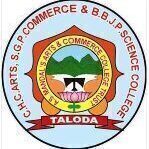Best Practices
| 1.Title of The Practice This title should capture the keywords that describe the practice | Bee Keeping |
2.Duration (year of inception-year of discontinuation) What is year of inception? Is the practice still continuing? If not what is the year of discontinuation? | Year of Inception – 2013 Yes, this Practice is still continuing |
3.Objective of the Practice What are the objective/intended outcomes of this “best practices” and what are the underlying principles or concepts of this practice (in about 100 words) | (1)To impart training of bee keeping to the tribal, rural students (2)To make them familiar with the theoretical and practical knowledge of bee keeping. (3)To enable them to start the business of bee keeping. (4)To Make the students self reliant and earn their own livelihood. (5)To make maximum use of local resources and help the students in self employment. |
4.The context What were the contextual features or challenging issues that needed to be addressed in designing and implemented this practice (in about 150 words) | Bee keeping is generally taken as supplementary business but it may provide full scope opportunity for earning livelihood to the rural, tribal students if managed properly. It can provide ample scope for the self employment. It can also provide jobs in various NGO’s which are promoting apiculture. Our college is situated in small tahsil town where majority of students come from rural, tribal families. They all have agricultural background and so can easily opt for bee keeping as a career option. Bee products and by products like honey, bee wax, pollen, royal jelly, bee venom, bee brood and queen pheromones etc have tremendous scope in the market. So training the students in this area will surely help them in self employments as well as generating employment for others also |
5.The Practice Describe the practice and its uniqueness in the context of India higher education. What were the constraints/limitation, if any faced (in about 400 words)? | The college is running a short duration certificate course. The course was started with the financial assistance of the UGC since 2013. Now the college is running this course only on self finance based to train the students in all aspects of the apiculture. The admitted students mostly came from the rural and tribal background. Many of them are the first generation learners who need guidance, training and expertise in starting their agri-based business for employment. The students from agriculture background have an added advantage for their family profession and geographical situation. As most of the students came from the neighbourhood at the foothills of the Satpuda mountain ranges. This value added course has been proving very useful for earning their livelihood through self-employment and various NGO’s. |
6.Evidence of Success Provide evidence of success such as performance against targets and benchmarks, review/results. What do these results indicate? Describe in about 200 words | The certificate course has been imparting both theoretical knowledge and practical training in the science of apiculture and its economic aspects including breeding, rearing of bees, climate condition and the risks and challenges in the bee keeping. The students are acquiring value added certificate to enhance their employment prospects. These students are equipped with the technical know how about the apiculture. |
7. Problems Encountered and Resources Required Please identify the problems encountered and resources required to implement the practice (in about 150 words) | While implementing the course we face the problem of hot temperature. The bees migrate for suitable climate when the mercury rises in the area. The resource of the diversity of flora and fauna is most essential for the bee keeping and this part of Maharashtra is very rich regarding diversity of the same. |
8.Notes(Optional) Please add any other information that may be relevant for adopting/implementing the Best Practice in other Institutions(in about 150 words) | Keeping in view the situational advantage of the geographical location of the college and the socio-cultural, familial background of the students, the course is very much useful and relevant for our college. |
